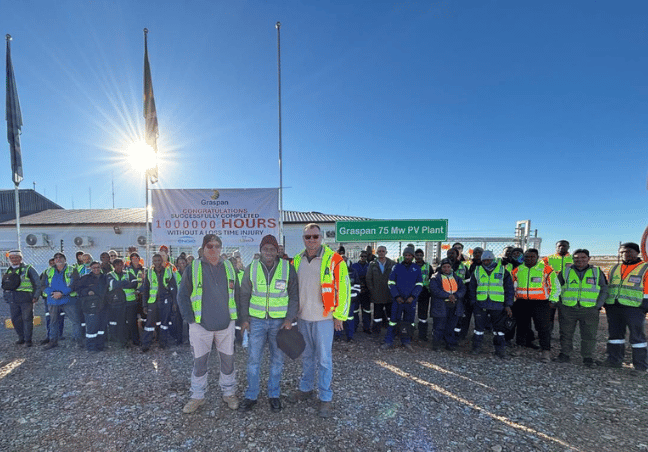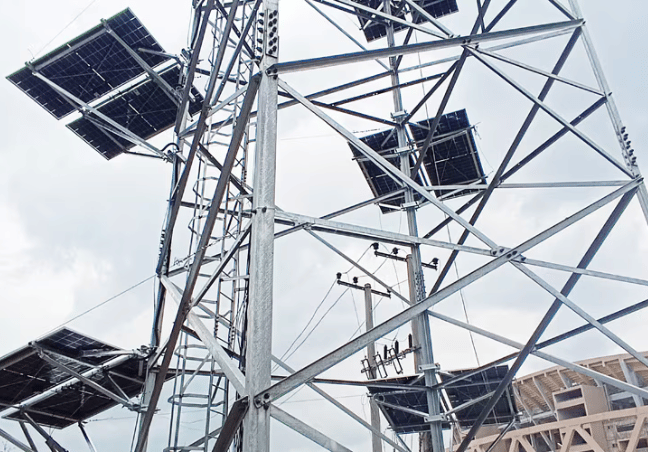- Renewables Rising
- Posts
- Ethiopia takes the less-travelled path in solar manufacturing
Ethiopia takes the less-travelled path in solar manufacturing
Dear subscriber, this is a prototype. Please help us with feedback and tips. Just press reply.
While many African countries have increased solar panel imports from China, Ethiopia is charting a different path. The country is importing solar wafers, the thin crystalline slices used to produce solar cells, to build its local industry. According to data platform Ember, it has imported wafers equivalent to 874 MW of solar capacity since the start of 2025. |
Wafers are used to make solar cells, and those solar cells are then assembled to make solar panels, the large, flat modules that are now used to capture sunlight and convert it into electricity.
In early 2025, Ethiopia began producing solar cells in partnership with Japanese company TOYO, starting with an annual capacity of 2 GW. The facility is now undergoing expansion to double output.
Our take: Africa risks becoming a low-cost production base without solving its own energy poverty… Read more (2 min)
Limited urban land and space for solar installations slow renewable energy adoption in African telecom infrastructure. Ethio Telecom, in collaboration with Huawei, has deployed Africa’s first Solar-on-Tower solution, integrating solar panels directly on telecom towers to overcome power challenges and promote greener telecom operations across the continent. |
The telecoms sector is evolving to incorporate sustainability into its operations. As networks expand to meet growing data demands, power consumption increases, creating opportunities for the integration of renewables.
Solar, in particular, is highly cost-effective, especially compared to traditional diesel generators. Telecom operators report up to 49% reduction in operational costs by switching away from diesel generators.
Our take: Africa’s telco future depends on sustainable power solutions that balance cost and efficiency… Read more (2 min)
Over the past two months, Africa witnessed two major policy shifts in the energy sector, mainly in West Africa. Nigeria granted regulatory autonomy to 11 states to establish independent electricity markets, while Ghana introduced its 24-hour economy policy, which plans to lower night electricity tariffs and drop import duties on renewable energy systems. |
Nigeria’s energy challenges have made it necessary to rebuild the electricity sector to fast-track project development and attract private capital. This follows the path taken by South Africa, Zambia and Kenya.
For Ghana, the 24-hour economy policy marks a big leap, but with the government committing only $300 million out of the $4 billion required for its implementation, its success will depend on private sector buy-in.
Our take: A more connected power sector would provide export opportunities given abundant and low-cost generation capacity… Read more (2 min)


Engie celebrates 1,000,000 hours without a lost time injury (LTI ) at its Graspan site in South Africa
Events
🗓️ Attend the Open Source Software for Energy Planning webinar (Sep 18)
🗓️ Sign up for a webinar on solar for C&I installations & large PV plants (Sep 18)
🗓️ Take part in a forum on batteries and metals in global energy (Sep 29)
Jobs
👷🏻♂️ Lead Sun King’s trade developments (Kenya)
👷🏻♀️ Become CrossBoundary’s Associate (Ghana)
⚙️ Join SNV’s team as a Country Director (Tanzania)
Various
⚡ Bboxx onboards a new Chief Operating Officer
💸 Afreximbank joins African Energy Week 2025 as a Diamond Partner
🟢 AB Solar Africa extends 1.5 MWp system for Miro Plywood in Sierra Leone\
Seen on LinkedIn
Harrison Daka Lukwesa, Director and Lead Engineer at Daka and Associates Construction Brokerage Limited, says, “When evaluating renewable energy sites, the state of publicly-owned civil infrastructure is a critical, and often underestimated, factor.”


